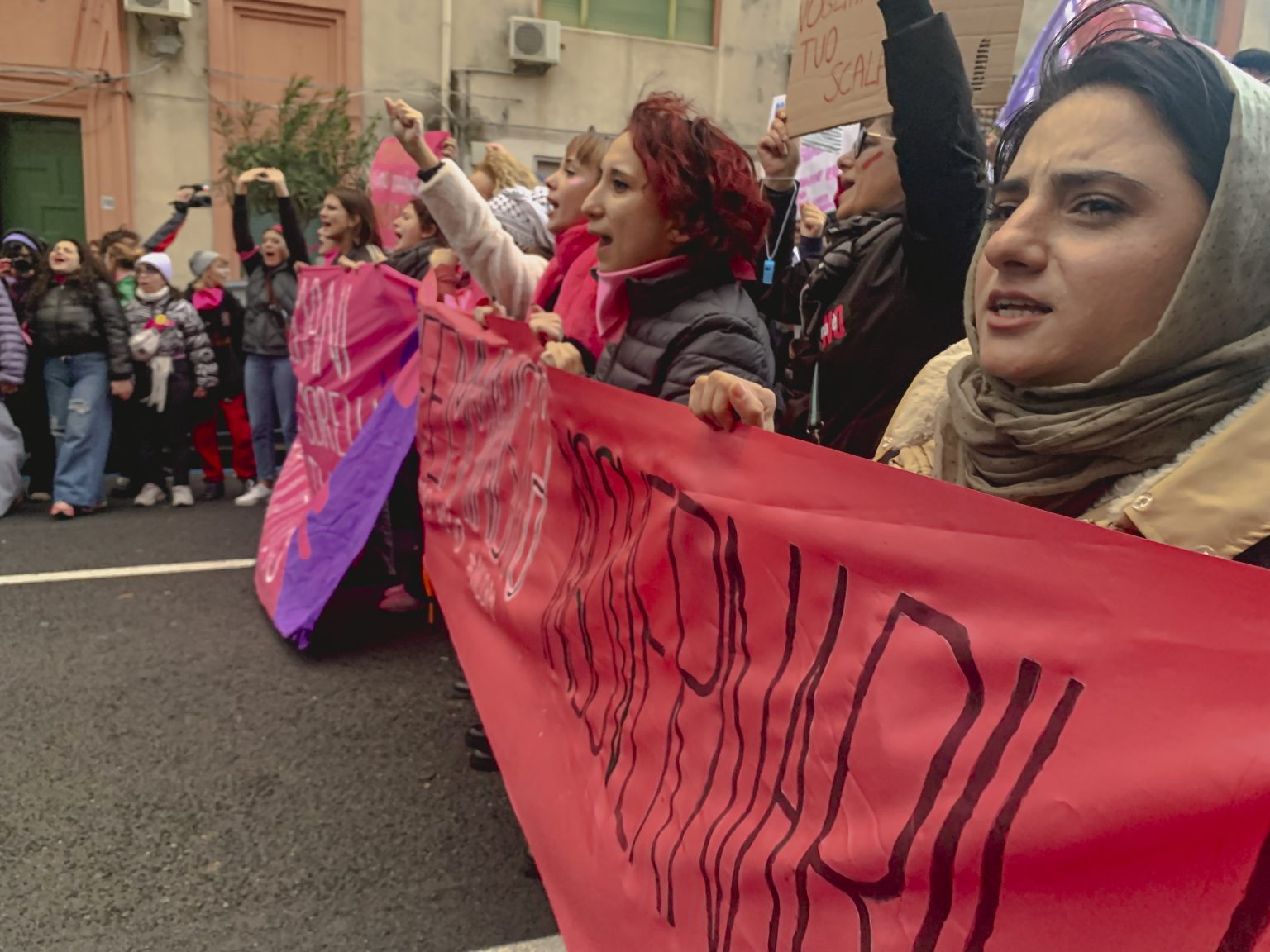By Marinella Correggia
This Tuesday, May 28, in the spaces of the Pangea Association located in Rome, Italy, took place the closing of the Agency Project “Vote with her”, with the support of the European Parliament, coordinated by the European Network of Migrant Women (ENoMW) – Feminist platform of migrant and refugee women in the EU – in collaboration with femLENS (non-profit cultural and educational association). The event was attended by the Ambassador of the Plurinational State of Bolivia in Italy, Sonia Brito; the Venezuelan activist Doris Theys; the president of the DUN Association, Barbara Massimilla, and the vice-president of Pangea, Simona Lanzoni, as well as an audience receptive to immigration.
In a wide-ranging discussion, the Italian participants in the project recounted their experience of using the “Photovoice” technique, an artistic tool through which the art of photography is used in a social-political sense. Art helps to build bridges and, therefore, to create contact and inclusion, facilitating encounters and leading to new approaches that promote knowledge of cultural diversity and political participation. In the specific case of Italy, the person in charge of preparing the participants in the difficult art of photography and Photovoice was the photographer Maria Grazia Granati, who was also the curator of the exhibition of the works produced by the migrant women participants currently residing in Italy: Tahmina Ibrahim Khel (Afghan artist), Hadia Ibrahim Khel (Afghan, activist of the Gender team Afghanistan program), Basira Taheri and Gulalai Hakimi (Afghan, activist in Italy for the rights of Afghan women), Fatima Zahara El Harch (of Moroccan origin, doctoral candidate in legal studies) and Yoselina Guevara (Venezuelan,journalist and geopolitical analyst).
The objective of the Agency Project was to promote the political participation of migrant women and to encourage citizens to participate in the European Parliament Elections next June, in order to create and maintain more egalitarian and democratic societies, where the rights of migrants, especially women, are recognized, regardless of their origin and eliminating any form of racism or discrimination.
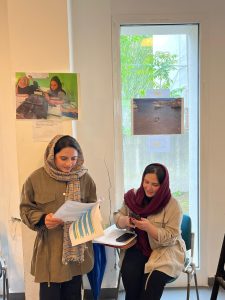
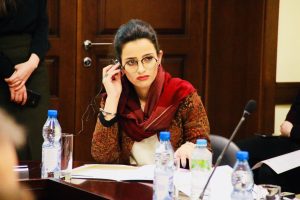
Stories of Afghan women’s resilience in Europe
Basira Taheri and Hadia Ibrahim Khel, through photography, tell the story of resilience, of starting over in a strange country, of two Afghan women belonging to two different generations, but united by the strength of the struggle for women’s rights. The Taliban regime, in the name of religious extremism, has taken away practically all the freedoms of women in Afghanistan, leaving them in a state of total unprotection, of violation of fundamental rights before the eyes and inaction of the international community.
Basira Taheri documented the story of Gulali, whose husband was killed by the Taliban in 1996. As a young widow with two daughters, she faced numerous challenges in Afghanistan as a woman. Male members of her family denied her and her daughters the opportunity to continue their studies. However, she persisted in fighting for her rights and remained dedicated to her work and activism. Gulali is worried about her future in Europe and emphasizes, “I came here hoping to continue my activism and feel safe. However, with the current news about restrictions on immigrants, I am very worried. I understand that voting is crucial to bring about these changes, and with the upcoming elections scheduled between June 6 and 9, 2024, it is imperative that all of us vote. Once I get my right to vote, I will exercise that privilege.”
Hadia Ibrahim Khel tells the story of her sister Tahmina Ibrahim Khel, a 26-year-old Afghan artist and activist who leads the “Educational Renaissance for Women” campaign in Italy. Her mission is to help refugee women overcome their difficulties through education, paving the way to a better future. Hadia notes “Tahmina’s struggles mirror those of countless immigrant women in Italy. Her journey speaks volumes about the importance of education in reshaping lives and breaking down barriers. Through her story, we understand that education is not just a privilege; it is a lifeline for those seeking hope and opportunity.”
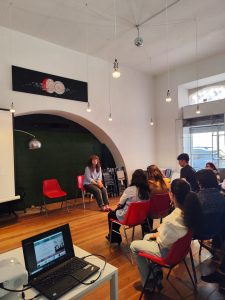
If you vote, you have a voice and a vote: beyond an empty slogan
Fatima Zahra El Harch is a 27-year-old from Morocco who has been living in Italy since she was very young. For this PhD student in legal studies, the positive stories of immigrant women do not find space in the media, which tends to focus on immigrant women only when they are portrayed as heroines or victims of social injustice. This narrow narrative fails to capture the full complexity of their experiences and perspectives. Fatima did a job of portraying the life, normality, and positivity of young immigrant women who work, study, are politically active, and lead a life in Italy that is not without its difficulties.
For Fatima, migrant women are key agents of change within their communities; they are at the forefront of social movements and advocates for human rights, gender equality and racial justice. Their activism spans a wide range of issues, from migrant rights and labor rights to environmental sustainability and access to education. In addition, immigrant women are an integral part of the European workforce, driving innovation and economic growth in various sectors. It is imperative to recognize and celebrate the invaluable contributions of immigrant women to Europe’s socioeconomic landscape. This young woman argues that by recognizing their agency, resilience and transformative potential, we can create more inclusive and equitable societies that benefit all.

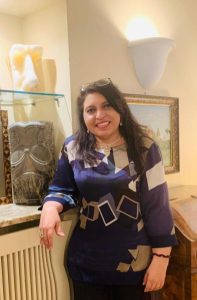
A story of integration: migrant women overcoming hardship
Yoselina Guevara López, a Venezuelan journalist living in Italy, carried out not only photographic but also investigative work on four migrant women, two of them Venezuelan women living in Greece and Spain (Lucia Marcano, Mitzaida Roja Ramirez); a Colombian woman living in Belgium (Maria Ligia Uribe) and a Romanian woman living in Italy (Bernadeta Bortos). As she pointed out during the conversation held at Pangea, Roma was an extensive work, of patience without setting limits, of listening without judging, of approaching with delicacy and respect the stories of these four women who opened the doors of their realities to be told through photography and words. In Yoselina Guevara’s work, the images captured show the smile and the hope, the denunciation, giving a voice to those who have never had one.
